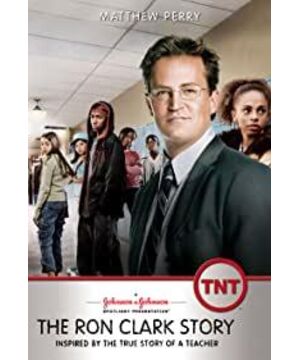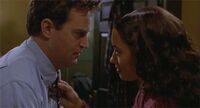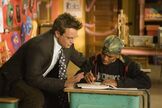1. Teachers
When I was a primary and middle school student, I hated some of the classmates who even hated the classmates who behaved badly. I thought they did not observe discipline, respect others, act frivolous and rebellious, and really lacked family education, lack of quality, and even It is hopeless, the teacher and the school should take a good look at them.
Looking back on it, I can’t help but feel a little funny, because I became a relatively liberal after going to college, and I have my own views on everything, and I no longer like the same thing and curb thoughts. Behavior has also become independent, because the "I" is becoming more and more centered in the outlook on life. Think about the so-called "bad" classmates who might be the pioneers of liberalism at that time. Of course, I am not emphasizing unorganized and undisciplined. Certain restraints and codes of conduct are necessary in a group, especially in schools, just like even the benevolent teacher Clark still promulgated some inviolable regulations in his class. After all, human beings are social animals, and there must be a certain group of norms.
The students of Teacher Clark in the film are obviously too much. So when facing the students' excessive behaviors and thoughts, as a teacher, you must restrain emotions and not take excessive counter-actions. This is the basic bottom line. But the task of the teacher is not to swallow his breath and hold back to teach. Especially as a class teacher, it is necessary to deeply understand the deep-seated reasons for the behaviors and thoughts of the so-called "problem students". This is very clear in the movie. The girl who is the most active and rebellious in the class has to bear the burden of raising a few younger brothers and taking care of the family at home; black boys who like to do graffiti on the street and even do some illegal business, in The family was scorned and domestic violence by the stepfather. If we look at the student’s performance in school alone, we usually simply judge that the student’s conduct is problematic, and only impose rigid restrictions on his behavior. The result is often counterproductive due to strong resistance and cannot fundamentally solve the problem. Adults know that they must respect each other's difficulties, let alone children who are very susceptible to emotional fluctuations.
Therefore, when faced with the so-called bad conduct and performance of students in school, first, we must maintain restraint, understand the underlying reasons why students have such behaviors, and understand the difficulties of students. Second, we should try our best to understand the reasons when conditions permit. It may involve the student's family status (the most likely factor), emotional status (affecting relationship), friendship status (bad youth), etc., understand After the specific situation is reached, the next step is to get the students' behavior on the right track. The right track is truth, goodness and beauty, not some stereotypes and rules. Let students discover positive things so that they can look at the two sides of things more comprehensively.
It boils down to not abandoning or giving up. Don't abandon any student who even seems hopeless. I believe that everyone can change, everyone has their own advantages, and everyone has their own difficulties. Don't give up any opportunity to understand students' influence on students. The role of the teacher is not just to impart knowledge and answer questions about exercises, but to help every student find himself and get on the right track. This first requires teachers themselves to have a high level of morality and education. Therefore, the worse the environment, the more it can reflect the true meaning of education, and the more it can reflect the level of a teacher.
2. School
It is worth noting that the school in the film is also a very important part of education. As the carrier of education, the school is an institution that is responsible to the whole society. The quality of a school’s education system will directly affect the level of sustainable development of its students.
For example, the sorting system shown in the film, which is also very common in daily life, schools must be cautious when implementing it. This is not to criticize the classification system, which is very popular in the field of education around the world, indicating that it must have its feasibility and effectiveness. I do not think that the classification system should be abolished. However, the school must grasp a certain degree on the issue of class assignment, that is, it must not go to extremes. In the two classes facing each other in the film, one is almost composed of good students, and the other is almost composed of so-called bad students. Such an extreme distribution method is obviously inappropriate for junior high school students who are still in their teenage years. For the poor class, some students who don’t want to learn take the opportunity to give up on themselves and break their cans, such as the black boy who often wears hip-hop hats and sits on the table in the class; there are also some students who want to learn but can’t keep up with their studies in this environment. It is more difficult to progress, such as the Indian girl in the film. In fact, it leads to a vicious circle in the entire class; on the other hand, this is not necessarily a good thing for children in a good class, because they are prone to not being encouraged and frustrated under a fiercely competitive environment for a long time. Classmates in poor classes develop arrogance.
In addition, we can notice in the film that before Teacher Clark came to the school, several teachers had already been taken away by the students, and the students even enjoyed it. This can't help making people imagine what the fate of this class would be if there was no Clark teacher, how many such bad classes there are in the United States, and how many Clark teachers can there be in the United States. What I mean is that schools should find ways to make up for the relative lack of teachers' quality in the system or to allow teachers to play to a greater extent. Improving the classification system is one aspect, which can relatively reduce the burden on teachers; appropriately reducing the constraints on teachers is also a feasible method.
3. Family
We often say that parents are the best teachers for children. The words, deeds, and moral qualities of parents can easily affect the character and morals of their children. All bad students in the film have a regrettable family environment, so in the final analysis, the mistakes in basic moral education are not in the school but in the family. The responsibility of schools and teachers is to make up for such shortcomings as much as possible. Therefore, in addition to organizing and carrying out moral education work in the school, the school must also go as far as possible to the students' homes. Teachers communicate with parents as much as possible through parent conferences and home visits. As a parent, you should take the initiative to establish a good example for your child and provide a loving and warm family environment.
As parents, try to avoid such a bad family environment: First, parents try not to divorce. Once divorced, the normal life of the family will be destroyed. Such blows are often more severe for young children than for adult parents. Coupled with the lack of care in life and the insufficiency of emotional needs, the child's immature spiritual world seems to collapse, often manifested as depression, depression, low self-esteem, strong sense of inferiority, incompatibility, and decline in academic performance.
The second is the inconsistency of parents' understanding. If different adults in the same family have different attitudes towards cultivating the next generation, the children will be at a loss as to what to do, which will lead to loss of direction and increase randomness. For example, the child's mother advocates that the child continue to go to school, but the father insists that the child drop out of school to do business. For this reason, the child is often noisy, which greatly affects the child's mood, which leads to a decline in academic performance or depression. The third is that the parents spare no money. Some parents give their children money or buy expensive prizes in order to allow their children to complete their homework or get high scores. This is undoubtedly a kind of bribery. This is undoubtedly a kind of bribery, which makes the children lose their inner motivation to learn and study for money, which is harmful and unhelpful. . In addition, parents do not hesitate money and material, luxurious home furnishings, and the pursuit of eating, drinking and having fun, often make their children coveted for comfort and do not seek improvement; fourth, parents have excessive entertainment. Parents become addicted to playing cards, even forgetting to sleep and eat, children lose their regularity in life, and it is difficult to study at ease in a noisy environment. Insufficient sleep will affect the next day’s lectures, which will naturally affect the learning effect.
I once heard Mr. Yan Chongnian's lecture at the Southern Book Festival. He said that the best way to educate children is to do it by themselves. The most typical example is reading. If parents want to cultivate their children's reading habits and enthusiasm, they must lead by example and read books by themselves, or even pretend to read. If the parents themselves play mahjong every day and watch TV series, how can they make their children want to experience the fun of reading? If parents themselves often read in front of their children in their free time, the children will naturally learn. Moreover, don't parents talking about liberal arts also have a great educational effect on their children?
Concluding remarks
The education of children is by no means one thing. As a teacher, we want Clark to learn, not abandon or give up any student; in school, we must pay attention to giving children a fair learning environment and optimizing the allocation of educational resources; in the family, parents should lead by example and provide children with a good family surroundings. Only by working together in many ways can we give our children a better future.
View more about The Ron Clark Story reviews











